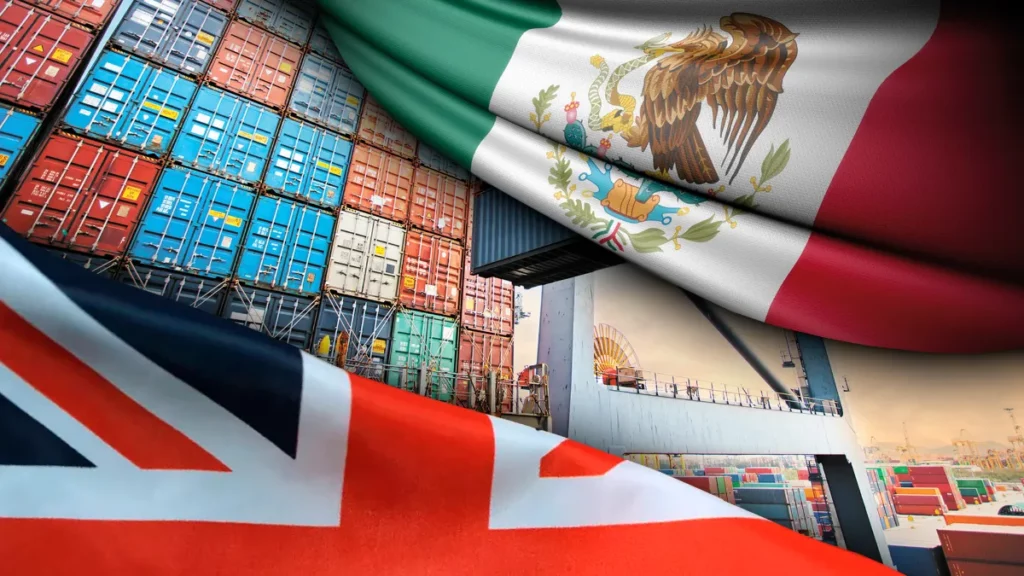
Mexico is recognized as the second-largest economy in Latin America. It is an emerging market due to the stable and sustainable economic policies of the Mexican government. Mexico has one of the most liberal trade policies in the world, achieved through a greater commitment to free trade agreements during the 1990s.
Free trade agreements (FTAs) are agreements between countries aimed at eliminating barriers to trade and investment. These agreements are defined by the World Trade Organization (WTO). FTAs seek to strengthen economic and trade ties, creating opportunities for both large and small businesses, thereby boosting economic activity and job creation among member countries.
Mexico has concluded several free trade agreements with different countries and regions. The following are the free trade agreements involving Mexico:
Mexican trade agreements in North America
United States-Mexico-Canada Agreement (USMCA): The United States-Mexico-Canada Agreement, also known as USMCA, is a trade agreement among the three nations signed in November 2018. The USMCA aims to support mutually beneficial trade, open freer markets, and promote economic expansion. Previously known as the North American Free Trade Agreement (NAFTA).
Mexican trade agreements in South America
Pacific Alliance: The Pacific Alliance is a regional integration initiative consisting of Chile, Colombia, Mexico, and Peru, officially established in April 2011. Its objectives are to improve financial stability, development, and productivity, reduce economic inequality, and promote social inclusion for its citizens. Mexico-Colombia: Negotiations were conducted for the Group of Three (G-3) Agreement between Mexico, Colombia, and Venezuela. The decision to discuss a free trade agreement was made during the Contadora Peace Process. It was announced in a conference in February 1999, attended by Central American countries and members of the European Economic Community. Mexico-Chile: The Mexico-Chile Free Trade Agreement came into effect in 1999. The treaty covers all topics related to international trade and Foreign Direct Investment (FDI). The main objective of the Mexico-Chile trade agreement is to establish a free trade zone. Mexico-Peru: Mexico and Peru signed a trade agreement in April 2011. The aim of the agreement was to enhance Mexico’s integration with Latin America and diversify its exports. The signing took place in Peru. Mexico-Uruguay: The Mexico-Uruguay Free Trade Agreement entered into force in July 2004. As the only FTA between Mexico and a member of MERCOSUR, the trade relationship is important for Mexico’s position.
Mexican trade agreements in Central America
Central America-Mexico: Mexico, Costa Rica, El Salvador, Guatemala, Honduras, and Nicaragua agreed on a plan for the convergence of their free trade agreements. Additionally, Central American governments committed to initiating negotiations to create a unique regional agreement with Mexico. The countries decided to achieve a better balance in their trade relations through clear and beneficial rules for their trade exchanges. They propose a larger and safer market for products and services made in their respective areas, taking into account differences in their development and the size of their economies. It also seeks to contribute to the competitiveness of the services sector by creating business opportunities in the free trade zone. Mexico-Panama: The Mexico-Panama Free Trade Agreement will create an important trade route and boost the economies of both countries. They will become significant centers for production and export of goods and services to the Americas and beyond.
Mexican trade agreements in Europe
European Free Trade Association (EFTA): Switzerland, Liechtenstein, Norway, and Iceland are members of the European Free Trade Association (EFTA), a global organization established in 1960 with the purpose of promoting free trade and economic integration among its members. EFTA member states and Mexico signed a free trade agreement in November 2000 in Mexico City. The agreement entered into force in July 2001. European Union-Mexico: The EU-Mexico Global Agreement is a trade agreement governing trade relations between the EU and Mexico. It is part of a larger agreement signed in 2000. The initial agreement provided significant trade benefits to the EU and Mexico. The new agreement will eliminate high Mexican taxes on European food and beverages, boost EU service exports to Mexico, and protect workers’ rights and the environment.
Mexican trade agreements in Asia
Comprehensive and Progressive Agreement for Trans-Pacific Partnership (CPTPP): The goal of the negotiation process is to create a platform for economic integration in the Asia-Pacific regions. The agreement improves market access by eliminating or reducing tariff barriers in six new markets and expanding advantages already enjoyed with five countries with which agreements have been signed. It fosters creativity, productivity, and competition, including all participants regardless of their stage of development and the size of their businesses. Mexico-Japan: Mexico and Japan signed the Economic Partnership Agreement (EPA) in September 2004. The agreement aimed to expand market opportunities and promote economic development. It came into effect in 2005. Some of the key outcomes of the Mexico-Japan EPA include improved access to the agricultural market for Mexican products, access to high-quality industrial inputs at low cost, and simplification of customs procedures through the use of an Authorized Export System. Mexico-Israel: The Mexico-Israel Free Trade Agreement came into effect in July 2000. The FTA aims to establish a Free Trade Zone, enhancing trade and the economy by reducing taxes and import restrictions for both countries.
The benefits of free trade agreements in Mexico are significant. These agreements have allowed Mexican exporters to reach more customers and sell more products in different markets. By attracting foreign investment, they have contributed to economic growth, job creation, and the development of industries within the country. As Mexico continues to forge new trade relationships and strengthen existing agreements, the country is positioned as a potential global economy.
